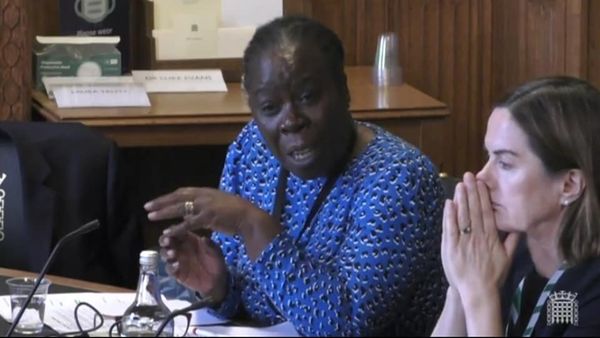Paulette Hamilton MP Labour Member of Parliament for Birmingham Erdington
What can your MP do?

Members of Parliament (MPs) are elected to the House of Commons to represent one of 650 constituencies. Their primary responsibility is to serve as the voice of their constituents and address issues raised by people living in their constituency.
MPs use their position in Parliament to:
- Voice concerns: MPs speak up for their constituents by raising issues and campaigning on matters that affect their local area.
- Legislation: MPs consider and vote on legislation, shaping the laws that impact the country.
- Question government ministers: They have the opportunity to ask questions about current issues and hold the government to account.
However, MPs do not have jurisdiction over local council decisions or policies. If constituents have problems related to local council matters, they should initially contact their local council or councillor. For instance, if there’s an objection to a planning application or proposed development, constituents should lodge their objections through the Birmingham City Council or their local councillor.
To view planning applications, constituents can use the online planning portal: https://eplanning.birmingham.gov.uk/Northgate/PlanningExplorer/GeneralSearch.aspx
To find out who their local councillor is, constituents can search by ward on the Birmingham City Council website: https://www.birmingham.gov.uk/councillors/ward
MPs cannot provide legal advice and have no jurisdiction over the police or courts. For legal disputes, constituents are advised to consult a solicitor. While MPs can raise concerns with the police on behalf of constituents, they do not participate in decision-making or law enforcement.
MPs divide their time between Parliament and their constituency:
- Parliament: MPs raise concerns, attend debates, scrutinise legislation, and vote on bills.
- Constituency: They hold surgeries for constituents, attend community events, visit local organisations, schools and businesses, and address concerns raised by constituents.
When constituents write to their MP, they can direct their correspondence to the relevant department, official, or minister responsible for the issue. MPs can assist with matters falling under Parliament or central government, including:
- Department for Business, Innovation and Skills: Responsible for business, trade, enterprise, universities, further education, and science. Contact: http://www.bis.gov.uk/ Tel: 020 7215 5000
- Department for Culture, Media and Sport: Handles culture, arts, media, gambling, the national lottery, sport, and the Olympics. Contact: http://www.culture.gov.uk/ Tel: 020 7211 6000
- Foreign Office: Oversees foreign affairs, diplomacy, consular services, travel advice, and sanctions. Contact: Foreign Office http: //www.fco.gov.uk/ Tel: 020 7008 1500
- Home Office: Manages crime, police, counter-terrorism, alcohol, drugs, immigration, and passports. Contact: http://www.homeoffice.gov.uk/ Tel: 020 7035 4745
- Department for Defence: Responsible for all defence-related policies. Contact: http://www.mod.uk/ Tel: 020 7218 9000
- Department for Education: Deals with schools, children, families, education, and teacher training. Contact: http://www.education.gov.uk/ Tel: 0370 000 2288
- Department for Energy and Climate Change: Focuses on energy and climate change policies. Contact: http://www.decc.gov.uk/ Tel: 0300 060 4000
- Department for Environment, Food and Rural Affairs: Manages natural environment, food, farming, fisheries, animal health, rural communities, and environmental protection. Contact: http://www.defra.gov.uk/ Tel: 08459 33 55 77
- Department of Health: Responsible for Government policy on Health and provides strategic leadership for public health, the NHS and social care in England. Contact: http://www.dh.gov.uk/ Tel: 020 7210 4850
- Department for International Development: Oversees for Government policy on international development and foreign aid. Contact: http://www.dfid.gov.uk/ Tel: 0845 300 4100
- Ministry of Justice: Manages for Government policy on the Courts, the Probation Service and Prisons. Contact: http://www.justice.gov.uk/ Tel: 020 3334 3555
- Department for Transport: Responsible for Government policy on aviation, roads, rail and shipping. Contact: http://www.dft.gov.uk/ Tel: 0300 330 3000
- HM Treasury: Responsible for Government policy on economics, finance and taxation. Contact: http://www.hm-treasury.gov.uk/ Tel: 020 7270 5000
- Department for Work and Pensions: Responsible for Government policy on welfare and pension policy, including pensions, the child support agency and job centres. Contact: http://www.dwp.gov.uk/
- Department for Communities and Local Government: Responsible for building regulations, community cohesion, decentralisation, fire services and resilience, housing, local government, planning, race equality, the Thames Gateway and urban regeneration. Contact: http://www.communities.gov.uk Tel: 0303 444 0000
Feel free to reach out if you have any further questions!
